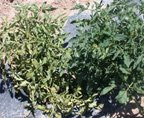


The Verde Valley Iris Society is holding their annual iris sale on September 7, Labor Day at Mt. Hope Foods in Cottonwood. This is a great place to pick up some beautiful iris at a reasonable price and get expert information.
The mission of Arizona's Yavapai County Master Gardeners is to provide the best science-based gardening information available. Through this blog we will try to keep you posted on what's happening in area gardens and what the Master Gardeners are doing.
Web Site for registration and all information http//cals.arizona.edu/coconino/highlandconference.htm
Registration materials are available at the Cottonwood and Prescott Extension offices or Contact Beverly Emerson: bjemerson11@juno.com or (928)646-0379
The Arizona Highlands Garden Conference is planned and presented by University of Arizona Cooperative Extension Master Gardener volunteers from Coconino, Yavapai, Gila, and Navajo Counties. The conference offers presentations on a variety of topics related to high elevation gardening and landscaping. This year’s theme is ‘From the Ground Up’ and features two nationally known speakers:
Jeff Lowenfels, author, radio host, and America’s longest-running garden columnist
Brad Lancaster, a dynamic teacher, author and rainwater harvesting expert.
Conference registration is $65 if received by September 1 and $80 if received after Sept. 1. To register fill out and mail the registration. Participants may also register for a pre~conference tour of six Flagstaff gardens for an additional fee of $15.
PRE-CONFERENCE GARDEN TOURS Friday, September 18, 2009 10am-4pm $15
Visit six gardens in Flagstaff, one of which has been a Master Gardener project for over six years and features over three dozen roses, a garden with wonderful outdoor living space, an award winning Xeriscape garden, and a local landscaper’s garden paradise that features an island, lake with water lilies, extensive perennial beds and much, much more. You will also receive information about several community gardens in Flagstaff. This is a self guided tour with Master Gardeners at each site to answer your questions. Once we receive your registration and additional $15 fee, we will send you information about the tour and a map to the gardens. You will be on your own to visit each garden between the hours of 10 am and 4 pm. You must pre-register to attend. For more information, call Eleanor at 928-606-4930.
LODGING
Rooms have been reserved at La Quinta Inn & Suites located less than one mile from the du Bois Conference Center. We have been given a conference rate of $107 to $116. You must reserve your room by August 18.
La Quinta Inn & Suites
2015 South Beulah Blvd. Flagstaff, AZ 86001 (928) 556-8666, $107 - two double beds for up to 4 people, $116 - king size bed, free Bright Side Breakfast







Here is one way to preserve your harvest—
Introduction to Safe Canning Principles Workshop
An introduction to safe canning principles workshop will be held Saturday, August 29, 2009 from 10:00 a.m. to noon at the University of Arizona, Yavapai County Cooperative Extension Office, 840 Rodeo Dr, Bldg C. The workshop will be presented by Marta Elva Stuart, Family and Consumer Sciences Agent, who will introduce basic food safety principles to properly can foods using the hot water bath method for high acid foods and the pressure canner method for low acid foods. Free pressure canner testing will be provided from noon to 2:00 p.m. (we do not test All-American pressure canners). There is a $10 fee for the workshop and preregistration is required. Make check payable to the University of Arizona and send to: Attn: Canning Workshop, Yavapai County Cooperative Extension, 840 Rodeo Dr. Bldg C, Prescott, AZ 86305. For additional information contact Marta Stuart at (928)445-6590 x225.
Arizona Highlands Garden Conference
September 19, 2009 du Bois Conference Center Flagstaff, AZ
Web Site for registration and all information http//cals.arizona.edu/coconino/highlandconference.htm
The Arizona Highlands Garden Conference is planned and presented by University of Arizona Cooperative Extension Master Gardener volunteers from Coconino, Yavapai, Gila, and Navajo Counties. The conference offers presentations on a variety of topics related to high elevation gardening and landscaping. This year's theme is 'From the Ground Up' and features two nationally known speakers:
Jeff Lowenfels, author, radio host, and America's longest-running garden columnist Brad Lancaster, a dynamic teacher, author and rainwater harvesting expert.
Conference registration is $65 if received by September 1 and $80 if received after Sept. 1. To register fill out and mail the registration form linked above. Participants may also register for a pre~conference tour of six Flagstaff gardens for an additional fee of $15.




